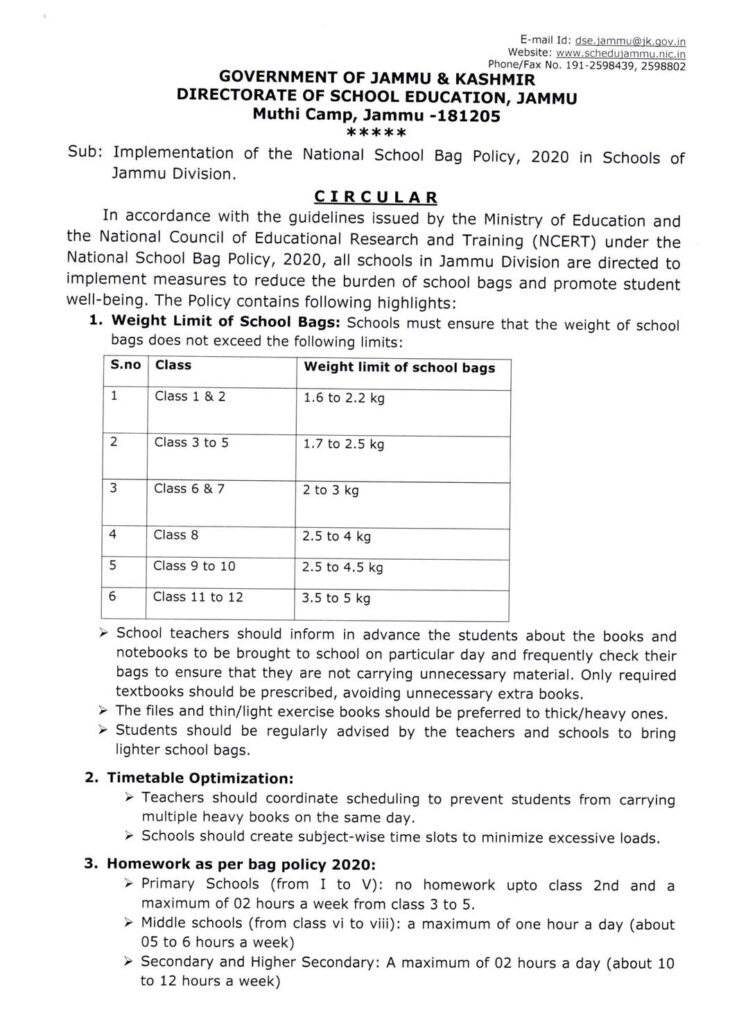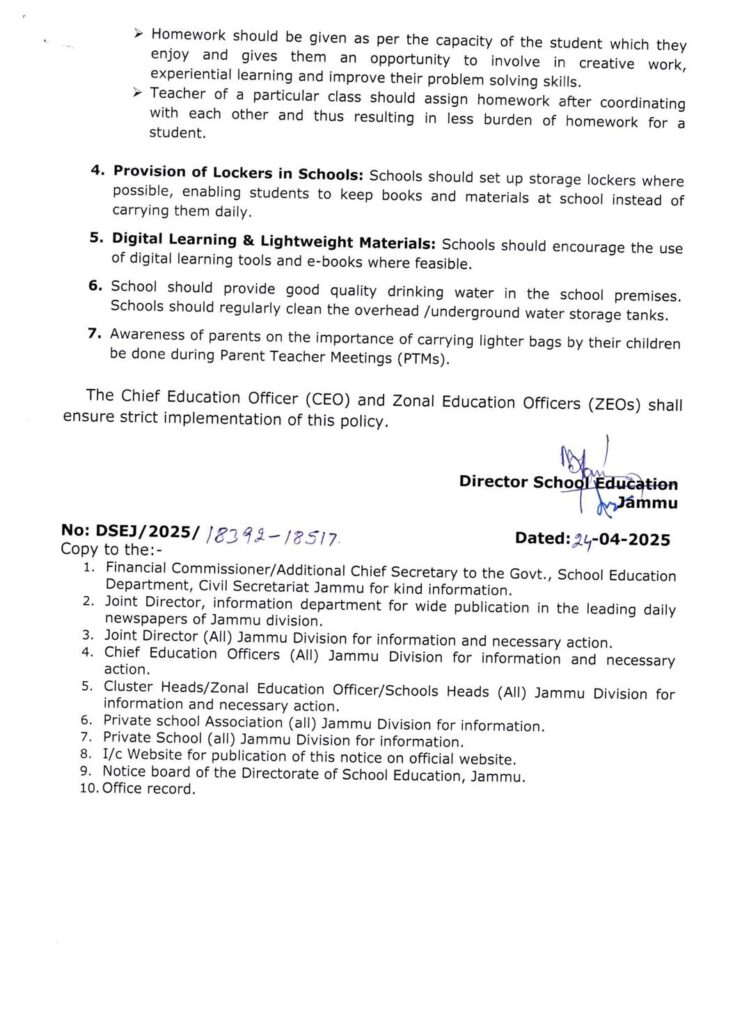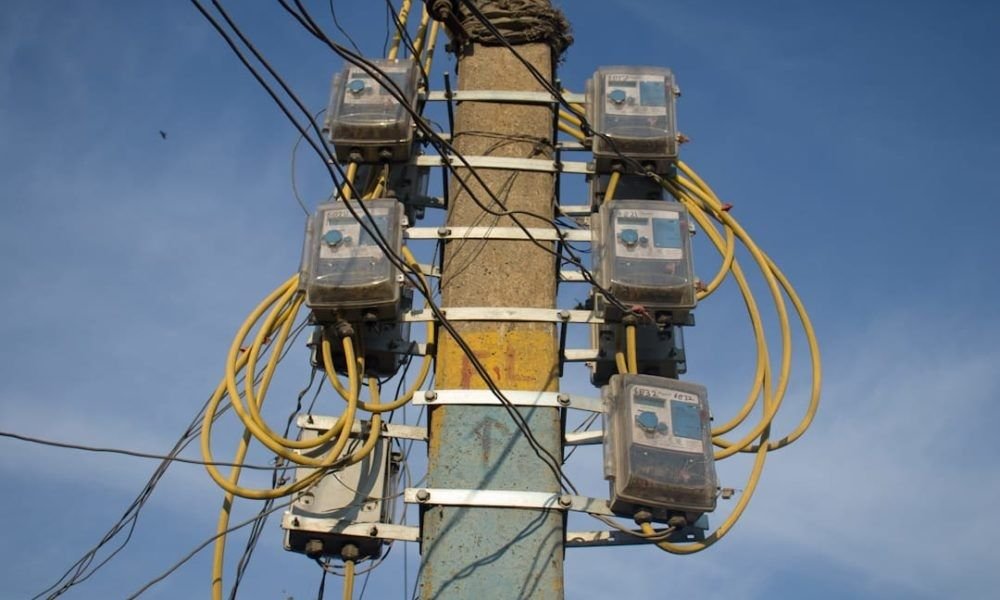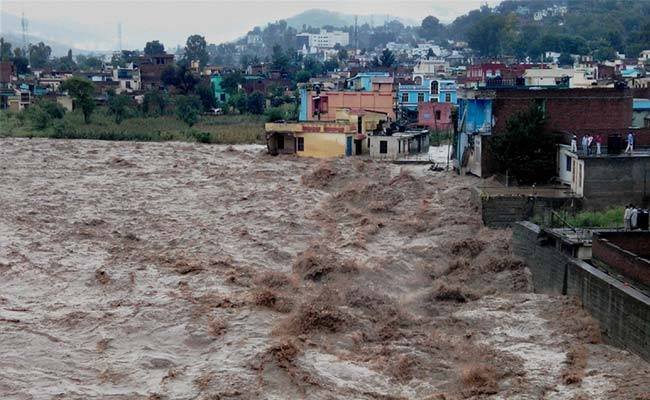The School Bag Policy 2020, introduced by the National Council of Educational Research and Training (NCERT), has been officially adopted by the Directorate of Education, Jammu This significant move aims to reduce the academic and physical burden on students across India by enforcing new norms for school bag weight, homework duration, and infrastructural upgrades in schools. Here’s a comprehensive breakdown of the policy and its implications for students, teachers, and school management.
Read the Circular about Implementation of the national school bag policy, 2020 in schools of Jammu Division by Directorate of Education, Jammu below:


Understanding the School Bag Policy 2020
The School Bag Policy 2020 sets clear parameters regarding what students should carry to school and how much their bags should weigh. As per the policy, schools must ensure that students are not overloaded with unnecessary items, and that academic practices align with the new health and wellness guidelines.
Advance Communication from Teachers
Teachers are now mandated to inform students in advance about which books and notebooks are needed for each day. This proactive approach is expected to eliminate the practice of students carrying all their textbooks, thereby reducing the burden on their backs.
School Bag Weight Guidelines by Class
The most crucial component of this policy is the weight restriction for school bags, which varies by class level:
- Classes I & II: 1.6 – 2.2 kg
- Classes III to V: 1.7 – 2.5 kg
- Classes VI & VII: 2 – 3 kg
- Class VIII: 2.5 – 4 kg
- Classes IX & X: 2.5 – 4.5 kg
- Classes XI & XII: 3.5 – 5 kg
Furthermore, for Classes I to X, the weight of a school bag should not exceed 10% of a student’s body weight, and for pre-primary students, carrying school bags is completely prohibited.
Read also: New Nursery Admission Rules in Jammu and Kashmir by J&K Govt
Routine Bag Weight Monitoring
Teachers must check school bag weight every three months on a designated day. Any student found with a heavier-than-permitted bag should be reported, and parents must be informed immediately. This routine monitoring promotes accountability and ensures long-term compliance.
Homework Load Based on Class
Along with limiting bag weight, the policy also tackles the issue of excessive homework pressure:
- Classes I & II: No homework
- Classes III to V: Maximum two hours per week
- Classes VI to VIII: One hour per day
- Classes IX to XII: Two hours per day
This approach is designed to balance learning and leisure, ensuring that children enjoy a holistic development without being overwhelmed.
Infrastructure Changes Required in Schools
To make the School Bag Policy a reality, schools are required to bring in certain structural upgrades:
Installation of Lockers
From preschool to senior secondary, schools must install lockers. This allows students to store textbooks and carry home only the necessary material, further reducing daily load.
Provision of Drinking Water
To prevent students from carrying heavy water bottles, schools are now obligated to provide quality potable water within the premises. This ensures hydration while lightening the school bag.
Preferred Materials for Class Use
The NCERT has emphasized the use of thin and lightweight notebooks instead of bulky or thick ones. This shift encourages schools to adopt eco-friendly and lightweight stationery that supports the policy’s vision.
Health Hazards of Heavy School Bags
Medical experts have long warned against the physical impact of carrying heavy bags. The School Bag Policy 2020 directly addresses this concern.
Potential Health Issues Include:
- Spinal damage and knee injuries due to prolonged strain
- Neck muscle tension, leading to chronic headaches
- Shoulder, back, and arm pain
- Disturbed posture, which may result in long-term muscular and nervous system issues
The policy promotes a safer, healthier educational experience for children by mitigating these risks.
The Role of NCERT in Educational Reform
The National Council of Educational Research and Training (NCERT), an autonomous body established in 1961 by the Government of India, spearheads educational innovation and research in the country.
Key Objectives of NCERT Include:
- Conducting and coordinating educational research
- Developing model textbooks, digital content, journals, and supplementary materials
- Organizing pre-service and in-service teacher training
- Promoting innovative teaching techniques
- Collaborating with state education departments, universities, and NGOs
- Acting as the nodal agency for Universalisation of Elementary Education
Through this policy, NCERT reinforces its commitment to student-centered, health-conscious, and future-ready education.
The School Bag Policy 2020 is a transformative step toward reducing physical and mental stress in students. By implementing realistic weight guidelines, homework limits, and infrastructural support, NCERT and the Directorate of Education are reshaping the educational landscape in India.
Parents, teachers, and school administrators must work in unison to implement these changes effectively. Together, they can create a learning environment where students thrive academically without compromising their health.
















